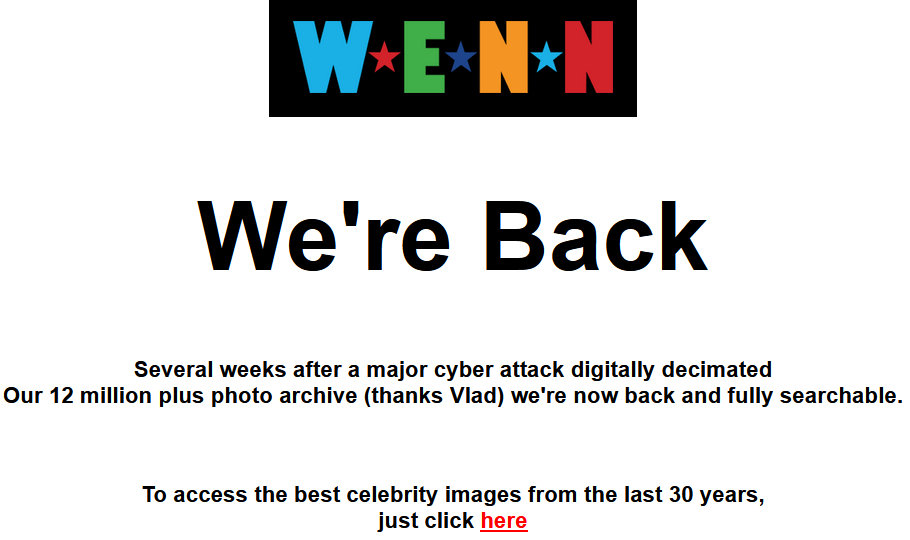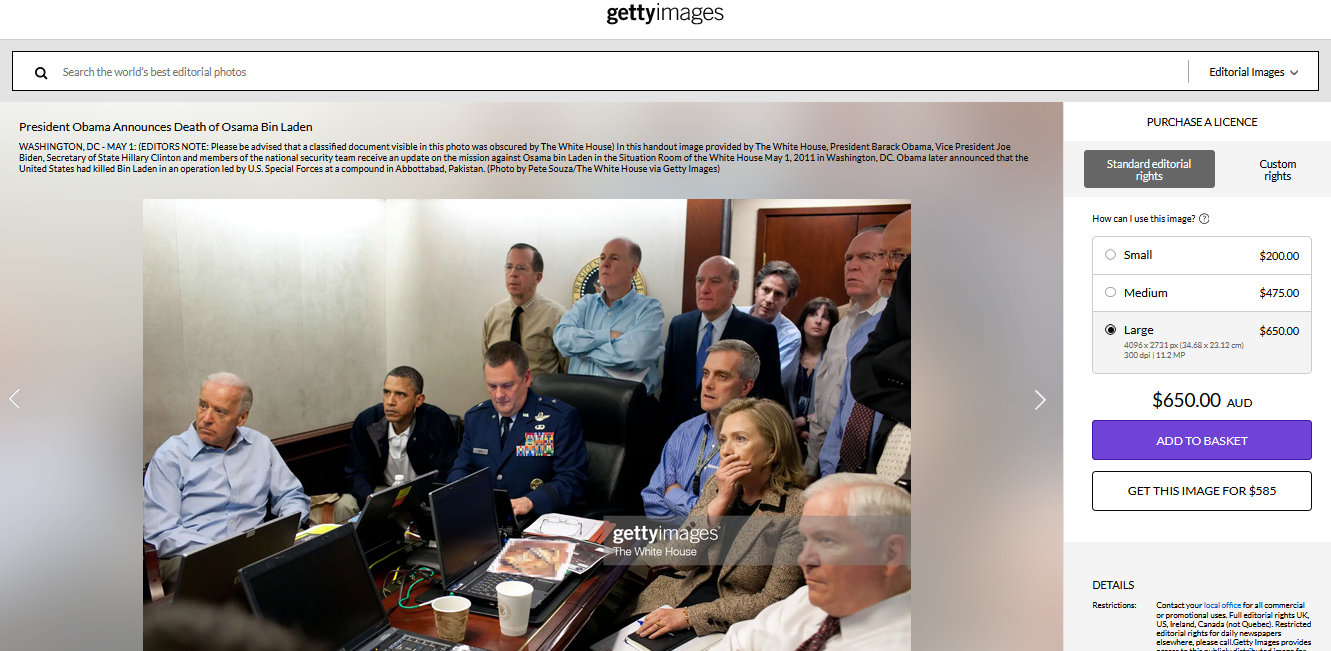Former White House photographer, Pete Souza, who spent two terms documenting US president Barack Obama, has been threatened with copyright litigation for publishing his own public domain pictures.

Souza, who had unrestricted access to Obama and captured several famous photos, wrote ‘you can’t make this shit up’ in regards to the legal threat from celebrity/paparazzi agency, Wenn Digital, in an Instagram post.
The photo (above) is from 2009 during Obama’s first overseas trip as president, and shows then-Secretary of State Hillary Clinton talking to Obama aboard a plane.
‘Secretary of State Hillary Clinton had joined us aboard the plane, and she and her staff were manifested in what’s called the staff cabin,’ Souza explains. ‘I made this photograph from the hallway looking into the small cabin. A month or two later, we posted this photo on Flickr as part of a gallery on the President’s first 100 days. By doing so, it immediately made the photograph in the public domain (there is no copyright involved in official White House photos).
‘After I departed the White House in 2017, I included this photograph on my website in my photo gallery of President Obama. Now I am being threatened with legal action for displaying this photograph on my website. Say what?’
Before jumping into the incident, a few words about Wenn Digital. Readers may vaguely recall the name from 2018, when it dragged the Kodak brand name through the mud by licensing it for a blockchain image licensing platform, KodakOne, and cryptocurrency, KodakCoin. It was an absolute train wreck that abysmally failed.
That isn’t all that’s gone wrong for Wenn Digital lately. It was recently victim of a ‘major cyber attack’, which ‘digitally decimated our 12 million plus photo archive’.
And now it’s sending baseless legal threats to one of the most famous official White House photographers and claiming they own copyright to his public domain image!
While indeed a baffling scenario, there is perhaps a straightforward explanation as to how this came about. Well, we like to think this is how it played out.
As Souza notes, public domain images aren’t protected by copyright, allowing Wenn Digital to add these pictures into the archive in the off chance a customer may be duped into paying a licensing fee for it.
A media outlet, for example, may be tracking down a generic photo showing Clinton and Obama. Unaware there is a hefty collection of free public domain photos, some swift Googlin’ leads them to Wenn Digital’s version of the picture. It’s a seemingly credible agency with the perfect picture, so they fork out a few shekels for a low-res copy for the article.
It’s like a fruit shop owner taking free lemons left out the front of someone’s home, and selling them in the hopes that customers don’t realise they could get them free around the corner.

Wenn Digital isn’t the only one selling licenses for public domain images. Getty and Alamy do it, Corbis did it, and it’s highly probably many others are in the business of flipping free photos. And why not? The business model is based on selling large quantities for low sums, so why not scrape all the worthwhile content that’s available. It may be dishonest to insinuate the agency owns the rights to license the image, but stock agencies aren’t exactly grounded with strong ethical frameworks
Copytrack manages Wenn Digital’s copyright infringement claims, taking a 45 percent cut of any fees recuperated,
Like other online copyright protection platforms, Copytrack automates as many processes as possible to keep overheads low. Similar to, say, TinEye or Good Images Reverse Search, Copytrack has a ‘high-performance-Web-Crawler’ that ‘searches millions of websites every day… and indexes millions of images to compare with the Copytrack image index.
When potential copyright infringement is detected, the platform sends aggressive letter demanding payment or the matter may be escalated with litigation.
While someone receiving the nasty letter may be led to believe a team of Copytrack lawyers are working around the clock to build a case against them, the business model relies on scaring folks to quickly pay up. With most processes being semi-automated, the lack of human intervention or basic research means the letter are sent out haphazardly/
While these copyright protection platforms can assist photographers who don’t have the time or energy to handle copyright, they have been heavily criticised for being ‘copyright trolls’ that use bullying tactics.
Here’s an excerpt from coverage of a similar service, Pixsy:
The first call to action is demanding payment through aggressive e-mails. Pixsy is not a legal firm, but attempts to shake out a payment by threatening expensive legal action.
Intimidation tactics don’t always pay off. There are online forum threads about how Pixsy has attempted to ‘extort’ hundreds of dollars from an individual hosting a non-commercial website. Some said they negotiated the fee down, others paid up, but many ignored it and eventually the problem went away.
It’s possible that Pixsy’s legal partners turn down minor acts of image misuse, so Pixsy drops the matter. Hey, at least the image (probably) is taken down!
And of Getty’s infamously heavy-handed approach:
The shake down may line Getty’s pockets with a few extra dollars, but it’s both inhumane and unreasonable. Even a US intellectual property lawyer, Kelly Keller, has labelled Getty a ‘bully’ which ‘exploits’ copyright law.
‘Getty Images’ high-priced law firm has been intimidating small businesses, website owners, bloggers, and more with heavy-handed copyright bullying tactic,’ she writes in a blog post, later adding: ‘Whatever you want to call it, what’s happening [with Getty] is a perfect example of a large company exploiting copyright law in the wrong way.’
Keller explains how several of her clients received the Getty letter, and she was unable to properly liaise with Getty about the dispute. Getty responded with automated templates, and in her opinion this amounts to a refusal to negotiate or provide pertinent details regarding the infringement.
So back to Souza.
His post goes on to say ‘I’ve received a notice from Copytrack on behalf of their client Wenn Rights International because I’m using an image without permission for this photograph that Wenn claims they hold the copyright to. I’ve responded to Copytrack, and their response was that I am “legally obligated to compensate our customer for the damage caused by this copyright infringement.”
‘So to recap: I made this photograph. It is in the public domain. WENN is licensing this image for publication. Copytrack is threatening to file legal action against me for displaying this photograph on my website, since their partner WENN claims they own the copyright to the image.
‘As I said, you can’t make this shit up.’
Wenn Digital told Petapixel the takedown notice is an ‘error’.
‘Most photo agencies, including Wenn, get sent PR photos from numerous organisations who appreciate their images being distributed to media outlets on their behalf. It would appear that is what occurred in this instance,’ Wenn Digital CEO, Lloyd Beiny, said. ‘Copytrack are employed by Wenn to seek out and solicit compensation for photographers whose works have been published without obvious permission having been granted. On this occasion it appears that the photo in question found its way into a group of images being pursued by Copytrack in error.
‘I have informed Copytrack to immediately drop the matter and confirm this to Mr Souza .’
The broader issue is Souza ain’t the only one copping these threats. Getty made similar baseless legal threats to US photographer, Carol Highsmith, for public domain photos she captured and donated to the US Library of Congress.
These are just two high-profile incidents. It’s highly likely picture agencies and copyright protection platforms have received payment for ‘unpaid licensing fees’ over other public domain images.





Be First to Comment